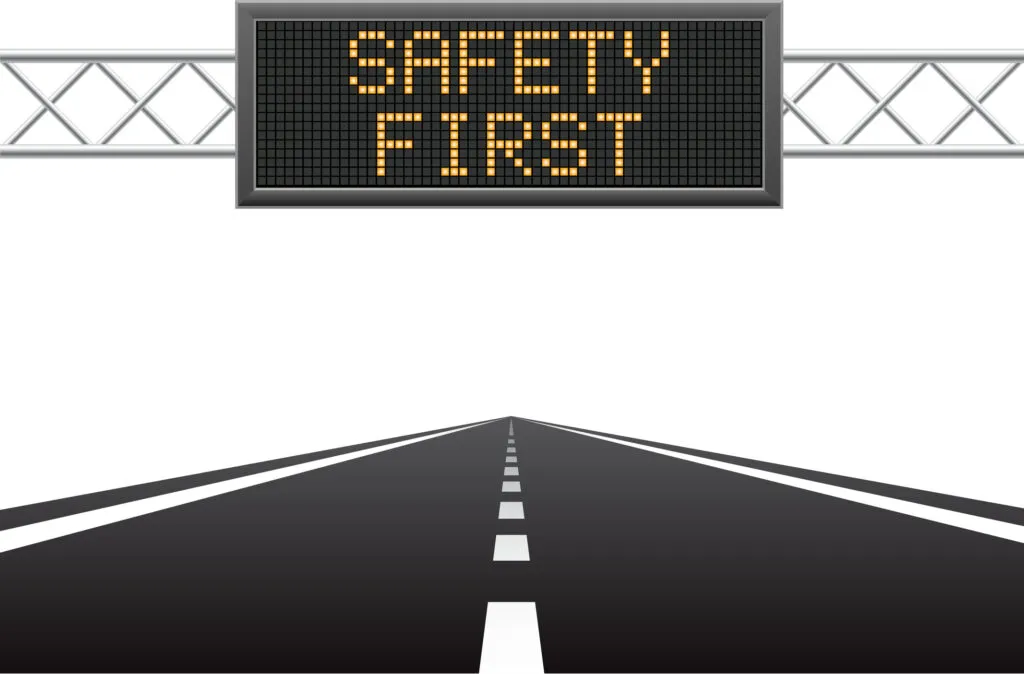
Get home early with RoadWarrior.
Enter your stops, optimize your routes, manage your team – quickly and efficiently.
Try RoadWarrior free for 7 days
Try free for 7 daysRoad safety is a critical concern for businesses in the transportation industry. With a high number of road injuries and crashes involving large trucks, it’s essential to prioritize safety and compliance. The Compliance, Safety, and Accountability (CSA) program, implemented by the Federal Motor Carrier Safety Administration (FMCSA), aims to improve road safety by evaluating the safety and compliance of carriers and drivers. In this comprehensive guide, we will delve into the intricacies of CSA scores for drivers, including how they are calculated, their significance, and tips to improve them.
Understanding CSA Scores
CSA stands for Compliance, Safety, and Accountability. It is a scoring system that assigns scores ranging from 0 to 100 to carriers based on their safety and compliance performance. It’s important to note that individual drivers do not have their own CSA scores. Instead, the scores are assigned to carriers based on their DOT number. Violations committed by drivers are attributed to the carrier and contribute to their overall CSA score.
The CSA Program Explained
The CSA program was established by the FMCSA in 2010 with the primary goal of enhancing road safety and reducing fatal crashes involving commercial vehicles. It holds carriers and drivers accountable for their role in maintaining safety on the roads. The program categorizes safety violations into seven Behavior Analysis and Safety Improvement Categories (BASICs), which include Unsafe Driving, Crash Indicator, Hours-of-Service Compliance, Vehicle Maintenance, Controlled Substances/Alcohol, Hazardous Materials Compliance, and Driver Fitness. These categories help evaluate the safety and compliance performance of carriers.
Factors Influencing CSA Scores
CSA scores are influenced by various factors, including violations recorded under the seven BASICs. Unsafe Driving violations encompass dangerous driving behaviors such as speeding, improper lane changes, and failure to wear seat belts. The Crash Indicator category considers state-reported crash data, analyzing the frequency and severity of a carrier’s crash involvement. Hours-of-Service Compliance violations relate to non-compliance with regulations regarding driver working hours and rest periods. Vehicle Maintenance violations pertain to issues such as faulty brakes, improper load securement, and inadequate lighting. Controlled Substances/Alcohol violations involve operating a commercial vehicle under the influence of alcohol or drugs. Hazardous Materials Compliance violations assess the safe handling and transportation of hazardous materials. Driver Fitness violations focus on unqualified or unfit drivers operating commercial vehicles.
Significance of CSA Scores
Maintaining a good CSA score is highly beneficial for carriers and drivers. A low CSA score indicates a commitment to safety and compliance, leading to lower insurance premiums, fewer DOT audits and roadside inspections, and a positive reputation with clients. Carriers with scores above certain thresholds are subject to FMCSA interventions, including inspections and audits. CSA scores are also considered by customers when selecting carriers and by insurance companies when determining premiums.
Checking Your CSA Score
To check your CSA score, visit the official CSA program website and log in using your DOT number and PIN. If you don’t have a PIN, you can request one from USDOT, which typically takes 4-7 days for delivery. Once logged in, you will be able to access your CSA score and review the detailed information related to your safety and compliance performance.
Tips to Improve Your CSA Score
Improving your CSA score requires a proactive approach to safety and compliance. Here are some tips to help you enhance your score:
- Prioritize Vehicle Maintenance: Regular and thorough vehicle maintenance is crucial to avoid violations related to faulty equipment. Pay attention to components such as tires, brakes, lights, and load securement to ensure they are in proper working condition.
- Hire Responsible Drivers: The competence and safety record of drivers significantly impact CSA scores. Implement a rigorous hiring process that includes thorough background checks and screenings to ensure you hire responsible and qualified drivers.
- Implement Pre-Trip Inspections: Encourage drivers to conduct pre-trip inspections to identify any potential issues before hitting the road. Pre-trip inspections help detect maintenance issues, ensuring compliance and reducing the risk of violations.
- Promote Compliance with Hours-of-Service Regulations: Emphasize the importance of adhering to hours-of-service regulations to prevent violations. Provide training and resources to drivers to help them manage their working hours effectively.
- Encourage Safe Driving Practices: Promote safe driving behaviors among your drivers, such as obeying speed limits, maintaining proper lane discipline, and using seat belts. Implement driver training programs that focus on defensive driving techniques and emphasize the importance of road safety.
- Monitor and Address Violations: Regularly review your CSA score and address any identified violations promptly. Develop corrective action plans to rectify areas of concern and ensure ongoing compliance with regulations.
By implementing these tips, you can gradually improve your CSA score and demonstrate your commitment to safety and compliance.
Conclusion
CSA scores for drivers play a crucial role in evaluating the safety and compliance performance of carriers. Understanding the factors influencing CSA scores and taking proactive measures to improve them is essential for ensuring road safety and maintaining a positive reputation in the transportation industry. By prioritizing vehicle maintenance, hiring responsible drivers, implementing pre-trip inspections, promoting compliance with regulations, encouraging safe driving practices, and addressing violations promptly, carriers can enhance their CSA scores and contribute to safer roads for everyone. Remember, safety and compliance should always be a top priority, and CSA scores serve as a valuable tool for evaluating and improving performance.


